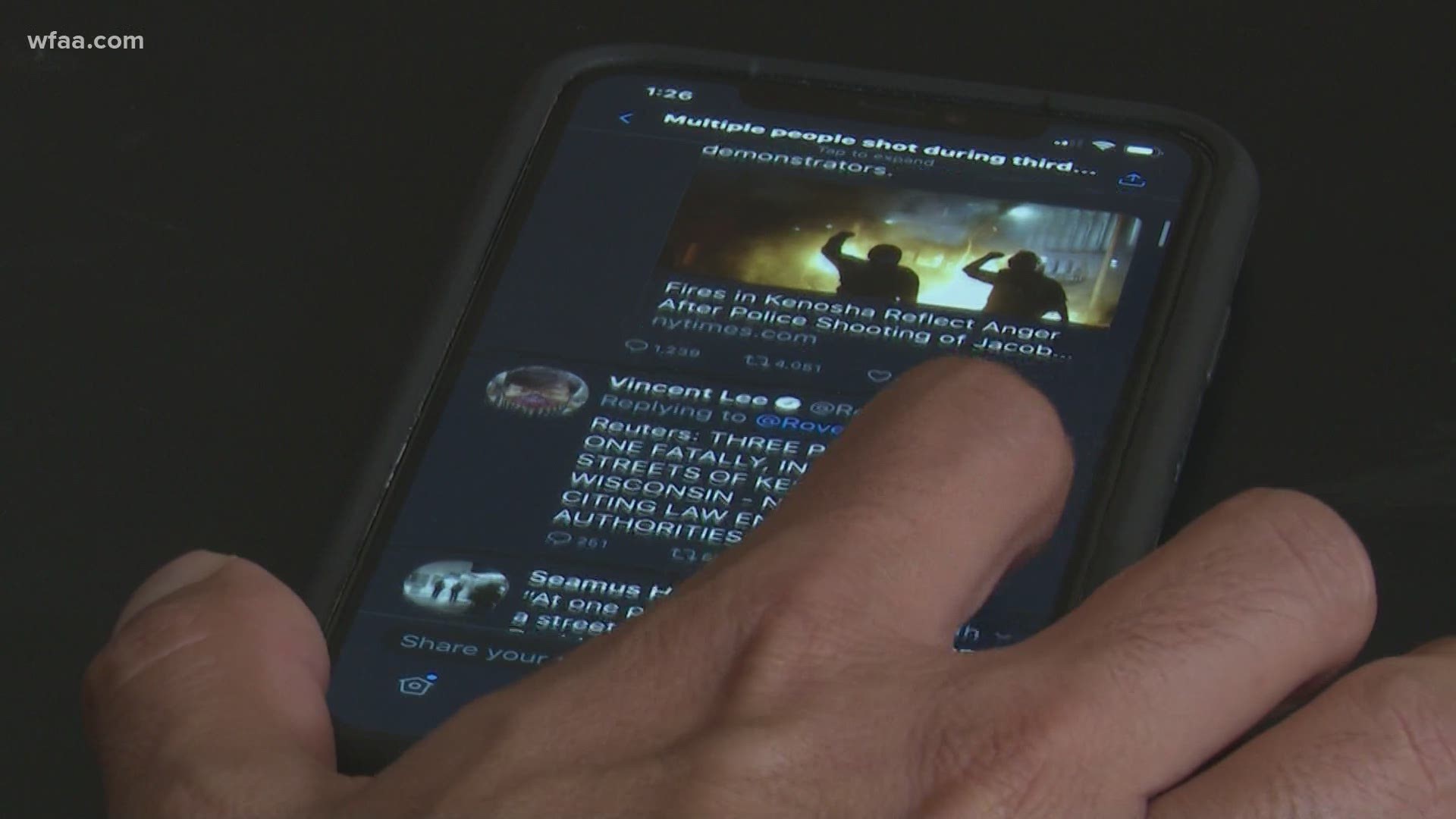FORT WORTH, Texas — Being a parent is hard enough under normal circumstances, but child psychologist Dr. Marta Otero says parenting in 2020 has been especially difficult.
“Parents are being overwhelmed,” Otero said. “They’re having to be the teacher and the guidance counselor as well as provide for their children.”
Because of at-home learning, more and more kids are spending longer and longer hours on their devices.
“Children are being bombarded with media of all kinds right now,” Otero said.
It’s not just school work. With racial tensions, natural disasters and violence in the streets regularly caught on camera, graphic images of suffering and death are just a click away on social media.
Emily Youree, CEO of Fort Worth Moms Blog and a mother of two, said exposure to some images can be especially harmful to children when there’s no one there to provide context and understanding.
“That is definitely concerning,” Youree said. “It is our job as parents to coach and to guide and that applies to how they are engaging with technology.”
One thing parents should avoid, Otero stressed, is pretending what kids see isn’t happening.
“That is extremely important,” Otero said. “It is happening. If we stick our head in the sand, that can harm our children.”
Instead, Otero says parents should have an honest conversation, find out how much kids already experienced, let them ask questions and give honest, age-appropriate answers they’re mature enough and able to understand.
“Think about the pros and cons of how that information might help or harm them,” Otero said.
You can’t stop what’s happening outside the walls of your home. In some cases, you can’t keep your kids from seeing it.
Sometimes, Youree said, you shouldn’t even try to, as long as you’re there to talk to them after they do.
“We don’t want our kids to be happy-go-lucky all the time,” Youree said. “We want them to face yucky feelings because we want them to be able to grow from them.”

